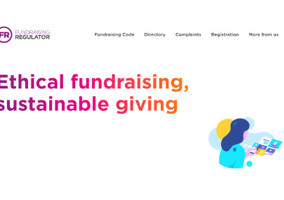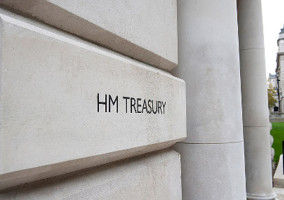The chair of the Fundraising Regulator has warned digital giving platforms they face statutory regulation from the government if they don’t voluntarily sign up to it by the autumn.
Speaking at the Fundraising Regulator’s annual general meeting in London this morning, Lord Michael Grade of Yarmouth said issues around digital giving platform’s charging models and transparency have gained “considerable parliamentary attention of late” and urged them to sign up with the regulator by the end of the summer in order to avoid possible statutory regulation.
“We also published new material in the code in June about the use of online fundraising platforms. An issue that has gained quite considerable parliamentary attention of late. This is a growing source of funding for the sector, and is popular with the public, but it is one where regulation is needed.
“I hope the platforms will support our regulation and sign up by the end of August, as some already have. The government has made clear in statements over the last week that statutory regulation could well follow if they do not.”
Grade’s warning follows a story in The Sun that Treasury minister Robert Jenrick had asked HM Revenue and Customs to “explore ways of stopping digital giving platforms from taking commission from Gift Aid” ahead of the autumn budget.
Jenrick told The Sun that: “some of the largest fundraising platforms have been keeping all or part of the Gift Aid amount on their fee. This is not the intention of Gift Aid, which is to provide more money for good causes and to support charities.
“I want this practice to stop and if it doesn’t, we will take action at the next opportunity. I have instructed HMRC to prepare steps to bring this to an end if required.”
Fraud ‘almost non-existent’ on fundraising pages
Gerald Oppenheim, the new chief executive of the Fundraising Regulator, defended digital fundraising platforms, saying that incidents of fraud on pages was “virtually non-existent”.
Responding to a question from the floor about what the regulator was doing about reports of fraudulent fundraising pages and money-laundering taking place, Oppenheim said that all criminal activity must be reported to the police, or the Financial Conduct Authority.
However, speaking with his “non-executive hat on” as a trustee of the London Emergencies Trust, he said that most platforms have “very sophisticated operations” to stop fraud.
“Actual incidents of fraud through fundraising pages is virtually non-existence. There are a lot of assumptions made that there is a lot of it. I don’t think that’s been proved at all. These platforms have very sophisticated operations that will spot something that looks suspicious at first blush. They are very good at catching this stuff.”
Grade said that the regulator’s interest in platforms is to “ensure that the public has the information it needs to make a judgement about which platforms to use or whether to use a platform at all”.
He also said that the regulator has been “pleased by the response of the major platforms in coming to the table and trying to work out a Code of Practice which will meet our objective in giving donors all the information that they require.”
The Fundraising Regulator co-chaired a digital giving platforms summit with the Charity Commission in September 2017, which was attended by 14 platforms.
According to its annual review document, the regulator has held two subsequent meetings with a further six platforms. This brings the number of platforms who have consulted with the regulator to 20.
|
Related Articles












